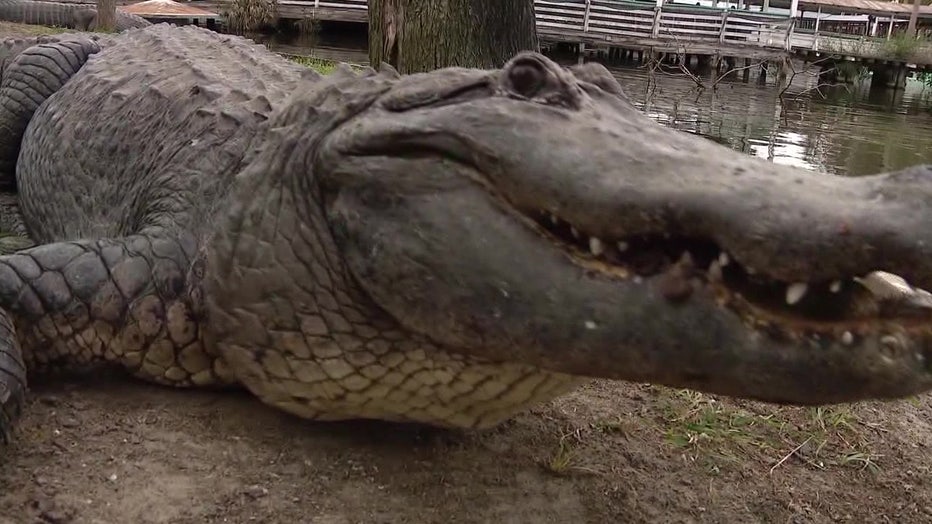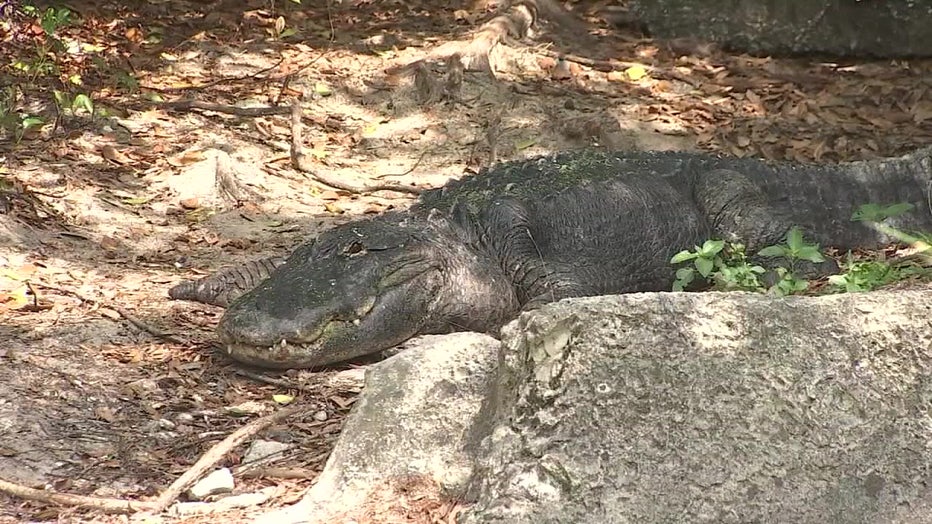Risky human behavior behind 96% of alligator bites: Study
TAMPA, Fla. - More gator interactions are expected this time of year, with it being mating season. Sometimes, however, gators look for love in all the wrong places.
Researchers with the University of Florida and Center College in Kentucky say it's not the gator's fault most of the time.
Researchers found that in almost all cases of gator bites, people did – unknowingly or not – engage in risky behavior moments before the bites. Researchers say that many bites are preventable if people were more aware of their surroundings.

What they're saying:
Unsurprisingly, Florida ranks number one in the country for gator attacks. Researchers from the University of Florida say humans are primarily to blame.
"They're not viciously aggressive, they don't want to attack you, they don't want to eat you, they're no voracious eating machines," said University of Florida Professor of Wildlife Ecology Frank Mazzotti. "None of those things are true about alligators. By and large, what they most like to do and spend most of their time doing is sitting in the sun getting warm."
READ: Michelle Trachtenberg cause of death revealed
Mazzotti is one of the authors of a study that analyzed nearly three centuries of records from 1734 to 2021 on human-alligator interactions.
Researchers found that in 96% of recorded incidents, some form of human inattention or risk-taking preceded the bite, meaning the attacks usually aren't random.
For example, swimming in bodies of water known for gators or walking dogs along ponds were two behaviors that ranked the highest on the list of risky behaviors.
"Bringing a dog next to the water is like yelling that you've got barbecue ribs. It is, I'm not sure why, but a very attractive food source," said Mazzotti. "I've known alligator trappers that, one of the ways they attract an alligator that they're after, is by barking like a dog."

Dig deeper:
As Mazzotti explains, the study's results emphasize that alligators aren’t really seeking conflict, but will respond when people provide what scientists call an "attractive stimulus."
Splashing, swimming or entering gator habitats are considered an "attractive stimulus" by scientists.
CLICK HERE:>>> Follow FOX 13 on YouTube
"It's very, very rare that somebody is completely innocent. And, you know, you're on a path and an alligator comes out and chases you. Usually, it's people who put themselves in an area where alligators occur," said Mazzotti.
Big picture view:
Mazzotti hopes the study's results can encourage more education about the risks of gators, especially for new residents moving to Florida.
The Source: FOX 13’s Jordan Bowen collected the information in this story.
WATCH FOX 13 NEWS LIVE:
STAY CONNECTED WITH FOX 13 TAMPA:
- Download the FOX Local app for your smart TV
- Download FOX Local mobile app: Apple | Android
- Download the FOX 13 News app for breaking news alerts, latest headlines
- Download the SkyTower Radar app
- Sign up for FOX 13’s daily newsletter

